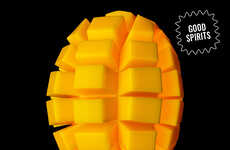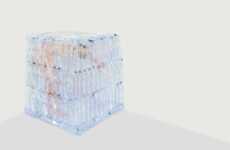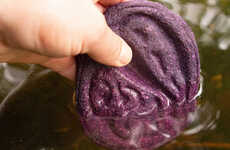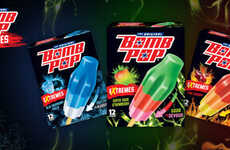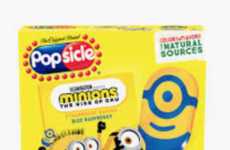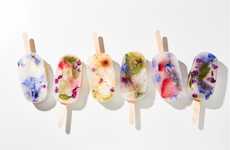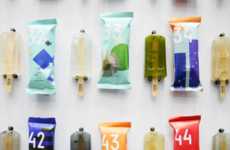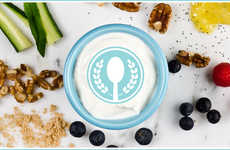
These Student-Created Popsicles are Made Out of Sewage
Mary Van Puymbroeck — June 7, 2017 — Eco
References: mashable
Students Hung I-chen, Guo Yi-hui and Cheng Yu-ti from the National Taiwan University of Art have created a display for toxic popsicles that is going viral.
The students went to over 100 different locations Taiwan to collect sewage runoff samples and turn them into popsicles. They then recreated the toxic treats using resin and displayed the final result at a design show in Taipei. They also created custom wrappers for the popsicles that reflect the location where each sample was found.
While the popsicles might look pretty, they certainly are not very appetizing. The students had to purchase a separate freezer to put the sewage samples in due to the odors they produced. Each popsicle includes any and all solid matter found in the water and 90% of the toxic popsicles featured some kind of plastic wrapper or bottle cap.
The students went to over 100 different locations Taiwan to collect sewage runoff samples and turn them into popsicles. They then recreated the toxic treats using resin and displayed the final result at a design show in Taipei. They also created custom wrappers for the popsicles that reflect the location where each sample was found.
While the popsicles might look pretty, they certainly are not very appetizing. The students had to purchase a separate freezer to put the sewage samples in due to the odors they produced. Each popsicle includes any and all solid matter found in the water and 90% of the toxic popsicles featured some kind of plastic wrapper or bottle cap.
Trend Themes
1. Toxic Artistry - Artists are exploring the use of toxic materials in their works as a commentary on environmental issues and sustainability.
2. Pollution Awareness Campaigns - There are increasing campaigns to educate people on pollution and ways to reduce waste.
3. Upcycling and Waste Reduction - Artists and designers are exploring ways to reuse waste materials to create new products, reducing waste and promoting sustainability.
Industry Implications
1. Environmental Education - Environmental organizations and schools can leverage this trend to spread awareness and promote sustainable practices.
2. Art and Design - The use of unconventional and recycled materials in art can inspire new design approaches and sustainable practices.
3. Food Production and Packaging - The use of plastic in food packaging has been a major contributor to waste and pollution, prompting a need for more sustainable packaging solutions.
4.6
Score
Popularity
Activity
Freshness



